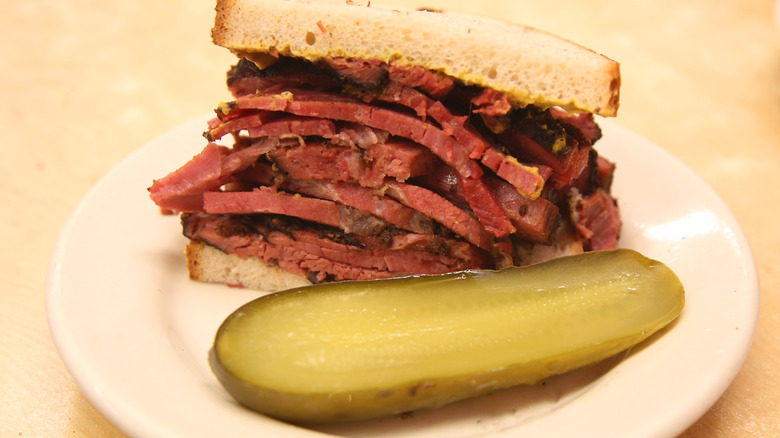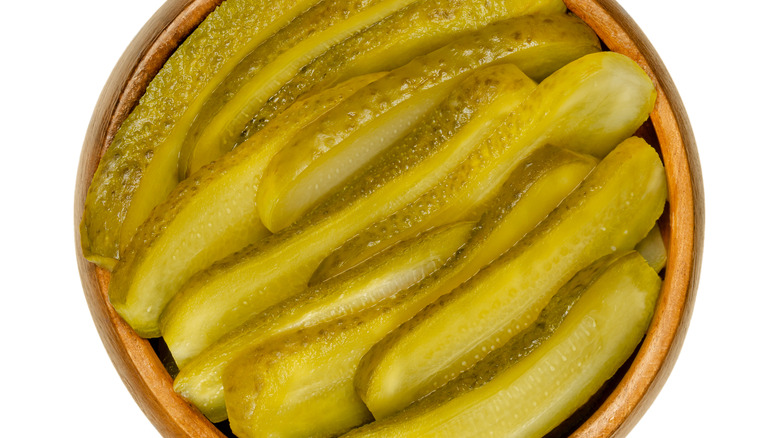Why Do Pickles Taste Different From The Deli?
The classic sandwich with a coleslaw side for lunch can be upgraded with a pickle on the side, or, even better, pickles on the sandwich, which tastes so good because all of the flavors get to marry together. That acidic touch improves any meal, especially the pickles that give us "Marvelous Mrs. Maisel" vibes and make us feel in a New York deli.
Deli pickles are definitely unique and tangier than store-bought varieties, though. According to Spoon University, deli pickles are one of the most popular types of this side, along with the sweet ones we usually have on burgers, the bread-and-butter pickles that usually have a pinch of celery seed and coriander, the beloved sour miniature Gherkin pickles, and the classic dill pickles you probably tried or made at home.
Still, pickles from the deli, widely known as kosher pickles, taste different because of how they are fermented. Its preparation method started as a tradition some decades ago to preserve food, later brought by Jewish immigrants to America in the late 19th and early 20th centuries (via History). This pickle follows the same procedure as other pickles, but it has one surprising ingredient that makes all the difference in the world.
Historically, deli pickles are saltier and prepared with garlic
As Freddie Jansen writes in her book, "Pickled," the New York Jewish deli pickles are immersed in saltwater brine instead of being fermented in vinegar. The deli pickle recipe starts with slicing cucumbers and putting them in a jar. Then, the salt brine is poured over the cukes until they're fully underwater, and they're then kept at room temperature for several days. In that same container goes chopped garlic before pouring the brine for its pungent and mustardy taste (via Spoon University).
Of course, this recipe can be versatile, and dill, peppercorn, coriander seeds, and chopped veggies are all welcome to join the jar. But, the method of fermentation, with water, salt, garlic, and other spices, is a classic because it has been practiced for thousands of years. As reported on PBS, since living in Europe, Jewish folks pickled their vegetables to avoid spoilage during cold weather. After landing in New York, people started to see this version of pickles on pushcarts, in Jewish-owned shops, and, finally, as a side with Reuben sandwiches and other Jewish deli lunches. This last one is a city attraction today, too.
Deli pickles carry an evocative power in them. Because of their historical value and garlic, they are one of a kind, as well as a lesson that we should all start keeping pickled vegetables in our pantries.

